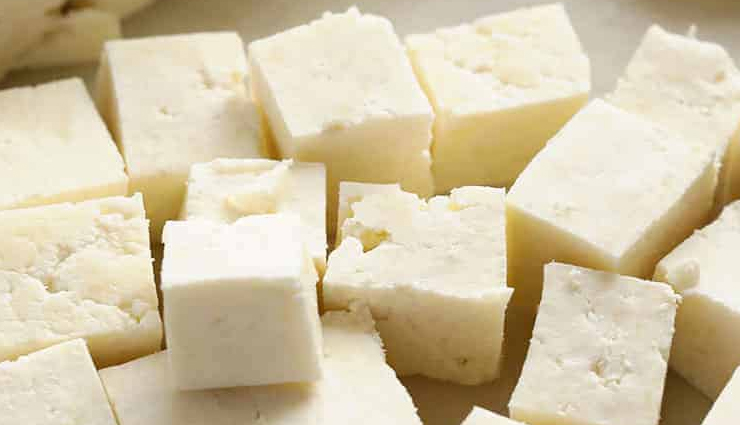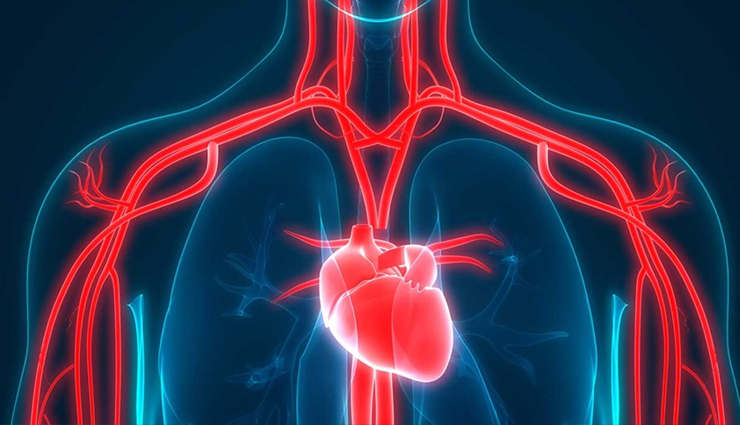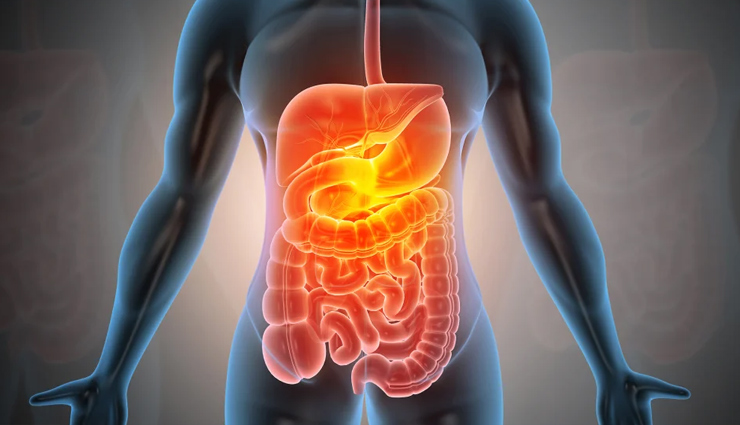- Home›
- Healthy Living›
- 10 Health Benefits Of Eating Paneer
10 Health Benefits Of Eating Paneer
By: Priyanka Maheshwari Thu, 27 June 2024 3:45:39

Paneer, also known as Indian cottage cheese, is a popular dairy product that has been a part of Indian cuisine for centuries. Made by curdling milk and separating the whey, paneer is a versatile ingredient known for its creamy texture and mild taste. Apart from its delicious flavor, paneer offers several health benefits due to its rich nutrient profile. In this article, we will explore 10 health benefits of including paneer in your diet.

# High-Quality Protein
Paneer is considered a high-quality protein source. It contains all the essential amino acids that the body needs for various functions, including muscle development, tissue repair, and enzyme production. High-quality protein sources like paneer are beneficial for vegetarians and individuals looking to increase their protein intake. Protein is essential for maintaining and building lean muscle mass, supporting overall body composition, and promoting satiety, making paneer a valuable addition to a balanced diet.

# Bone Health
Paneer is known to be beneficial for bone health. It is a rich source of calcium and phosphorus, which are essential minerals for maintaining strong and healthy bones. Calcium is a key component in bone structure and plays a crucial role in preventing conditions like osteoporosis and osteopenia. Phosphorus works in conjunction with calcium to promote bone mineralization and ensure proper bone development and strength.
Regular consumption of paneer can help fulfill the body's calcium and phosphorus requirements, especially for individuals who may have limited dairy or other calcium-rich food sources in their diet. Including paneer in your meals can contribute to improved bone density, reduce the risk of fractures, and support overall bone health.

# Muscle Development
Paneer can contribute to muscle development and is often included in the diet of individuals aiming to build and maintain muscle mass. Paneer is a rich source of high-quality protein, which contains all the essential amino acids necessary for muscle repair, growth, and maintenance.
Protein is crucial for building and repairing muscle tissues after exercise or physical activity. Paneer provides a substantial amount of protein per serving, making it a valuable addition to the diet of athletes, bodybuilders, and individuals involved in strength training.
The amino acids present in paneer are vital for protein synthesis, which is the process of building new muscle tissue. Regular consumption of paneer, combined with an appropriate exercise regimen, can help support muscle growth and recovery.

# Weight Management
Paneer is a rich source of protein, which is known to promote satiety and reduce appetite. Including paneer in meals can help you feel fuller for longer, potentially reducing overall calorie intake and preventing excessive snacking. As compred with other dairy products paneer is relatively low in carbohydrates. This can be advantageous for individuals following low-carbohydrate or ketogenic diets, which prioritize lower carbohydrate intake for weight management. Paneer is packed with essential nutrients, including calcium, phosphorus, vitamin B12, and vitamin D. These nutrients are important for overall health and can support your weight management journey by providing your body with necessary vitamins and minerals.

# Blood Sugar Regulation
Paneer has a low glycemic index, which means it releases sugar into the bloodstream slowly and causes a gradual increase in blood sugar levels. This slow and steady release of glucose helps prevent sudden spikes and crashes in blood sugar, promoting better glycemic control. The presence of protein in paneer can help slow down the absorption of sugar from carbohydrates. This can result in a more gradual rise in blood sugar levels after a meal. Paneer is a nutrient-dense food that provides essential vitamins and minerals, such as calcium, phosphorus, and B vitamins. These nutrients play a role in overall metabolic health and can contribute to maintaining stable blood sugar levels.

# Boosts Immunity
Paneer contains various vitamins, including vitamin A, vitamin D, and vitamin B12, which play essential roles in supporting a healthy immune system. Vitamin A helps maintain the integrity of mucosal surfaces, such as the respiratory tract, which act as barriers against pathogens. Vitamin D is known to modulate immune responses and promote immune cell function. Vitamin B12 is crucial for the production and activation of immune cells. Paneer contains calcium and phosphorus, essential minerals for overall health, including immune health. These minerals contribute to the proper functioning of immune cells and help in the development and maintenance of a robust immune system. Paneer is a source of probiotics, which are beneficial bacteria that support a healthy gut microbiome. A balanced and diverse gut microbiota is linked to improved immune function. By promoting a healthy gut environment, paneer indirectly supports immune health.

# Healthy Heart
Paneer is naturally low in sodium, which is important for maintaining healthy blood pressure levels. High sodium intake is associated with an increased risk of hypertension, a major risk factor for heart disease. By choosing low-sodium paneer or preparing it at home, you can control your sodium intake and promote heart health. As we all know protein is essential for various functions in the body, including the repair and maintenance of tissues, including heart muscles. Consuming an adequate amount of protein, like that found in paneer, can support heart muscle health. Paneer contains some amount of unsaturated fats, including monounsaturated fats and polyunsaturated fats. These fats, when consumed in moderation and as part of a balanced diet, can have a positive impact on heart health. Unsaturated fats are known to help reduce LDL (bad) cholesterol levels and maintain healthy blood lipid profiles.

# Improved Digestion
Proteins help in the production of digestive enzymes that break down food into smaller, more easily digestible molecules. Including paneer in your meals can provide a protein boost that supports the overall digestive process. Paneer made from fermented milk or with the addition of probiotic cultures can contain beneficial bacteria. These probiotics help maintain a healthy balance of gut flora, which is important for proper digestion. A healthy gut microbiome promotes efficient nutrient absorption and can help alleviate digestive issues such as bloating or constipation. Paneer does not contain dietary fiber, but it can complement fiber-rich foods in a meal. Fiber helps promote healthy digestion by adding bulk to the stool, preventing constipation, and supporting regular bowel movements. Paneer's soft texture can aid in the absorption of water from fiber-rich foods, contributing to smoother digestion.

# Energy Boost
Protein takes longer to digest than carbohydrates, providing a sustained release of energy and helping to keep you feeling full and satisfied for longer periods. This can help prevent energy crashes and promote stable energy levels throughout the day. As paneer contains several essential nutrients, including calcium, phosphorus, vitamin D, vitamin B12, and riboflavin. These nutrients play a vital role in various bodily functions, including energy production, nerve function, and metabolism. Adequate intake of these nutrients supports overall energy production and promotes a healthy metabolism. Paneer is a low glycemic index food, which means it releases glucose into the bloodstream at a slower rate compared to high glycemic index foods. Foods with a low glycemic index can help regulate blood sugar levels and prevent spikes and crashes in energy levels. Stable blood sugar levels contribute to steady energy throughout the day.

# Eye Health
Vitamin A plays a crucial role in the production of rhodopsin, a pigment found in the retina that helps with low-light and night vision. Adequate intake of vitamin A supports the overall health of the eyes and can help prevent conditions such as night blindness. As paneer is a good source of vitamin A, which is essential for maintaining healthy vision. Paneer contains antioxidants like vitamin C and vitamin E. These antioxidants help protect the eyes from oxidative stress caused by harmful free radicals. Oxidative stress can contribute to the development of age-related macular degeneration (AMD) and other eye diseases. Consuming foods rich in antioxidants, like paneer, can help reduce the risk of such conditions.





